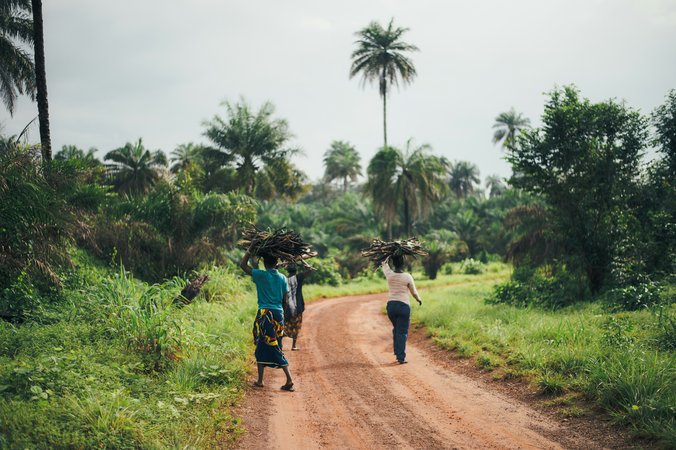Outline of the Article
I. Introduction
A. Brief introduction to Angola
B. Importance of Angola as a tourist destination
II. Angola’s Fascinating Traditions
A. Introduction to Angola’s cultural richness
B. Overview of cultural practices and customs
C. The role of music and dance in Angolan culture
D. Majestic ceremonies and traditional attires
III. Angola’s Stunning Landscapes
A. Angola’s tantalizing geographical features
B. Fascinating cities and the charm of Luanda
C. Biodiversity in Angola: A treasure trove for nature lovers
D. Beach and Seaside destinations
IV. Traditional Angolan Cuisine: An Irresistible Culinary Adventure
A. A glance at the diverse local cuisine
B. Popular dishes and their significance
C. Traditional dining etiquette
V. Exciting Cultural Festivals and Tribal Gatherings in Angola
A. A walk-through various cultural festivals in Angola
B. Ways to participate in these celebrations
VI. Day Trips and Excursions in Angola
A. Popular attractions worth exploring
B. Adventure activities to enrich your vacation
VII. A Stroll through the Unique Architecture of Angola
A. Mix of colonial and indigenous influences in architecture
B. Noteworthy buildings and structures in Angola
VIII. Essential Travel Tips for Angola
A. Health precautions and up-to-date vaccinations
B. Currency, local customs, and language tips
IX. Planning Your Trip to Angola
A. Insight on the best time to visit
B. Destination recommendations based on traveller preference
C. Suggested accommodation options
X. Sustainability and Responsible Tourism in Angola
A. Embracing responsible tourism in Angola
B. How tourists can contribute positively
XI. Concluding Thoughts
A. Summarizing Angola’s tourist experiences
B. Encouragement to explore Angola’s heritage and landscapes
XII. FAQs about Touring Angola
A. Typical travel concerns and solutions
B. Advice on overcoming challenges during the journey
XIII. Final Remarks
A. Inspiring last words for potential tourists
Unveiling Angola: A Tourist’s Guide to the Fascinating Traditions and Spectacular Landscapes
Angola, a west African country with a rich, diverse culture and an abundant blend of breathtaking landscapes, awaits you. Home to the iconic ‘beachcombers’, the dusty borderlands, waterfalls, lush tropical forests, and much more, Angola is a fascinating place indeed. The canvas of Angola is painted with a mix of traditions, including vibrant music and dance routines and fiery, engaging ceremonies. The kaleidoscopic panoply of Angola’s cultures, traditions, and landscapes will leave you spellbound.
In the heart of the Motherland, you’ll find an exciting melting pot of traditional customs. Known for their vibrant music and dance, the Angolan people have a way of expressing their joys, hardships, and history through rhythmic beats and body movements. Dressed in strikingly colorful traditional attire, the locals present a living tableau of Angola’s rich cultural heritage.
The landscapes of Angola, with its undulating terrains and teeming biodiversity, play a crucial role in its appeal. From the colossal borderlands to their treasure-borne beaches, from the charming cities to the incredible architectural marvels, Angola remains an endlessly intriguing travel destination.
A tourist in Angola gets to explore savannas, rainforests, mountains and coastal stretches that boast numerous species, many endemic and endangered. The grandeur of the Kissama National Park and Huila National Park is a paradise for wildlife explorers.
The Angolan cuisine is an adventurous journey on its own. The country’s food palette is a blend of indigenous and Portuguese influences with lots of fresh seafood, grains, and vegetables. The typical meal is either “sopa de feijão” or peanut stew served with tangy liberça, crunchy cassava, and rice.
Magic, color, life, spirituality, and a pulse race the air – these words can aptly describe the cultural events that you’ll get to experience in Angola. From the lively Kwanza music celebration to the many tribal gatherings, you won’t miss a beat or sight in these festive atmospheres.
A guided tour of Angola wouldn’t be complete without visiting its intriguing attractions. From the Gate of the Sea at Luanda to the dinosaurs of Cidade de Dias, Angola has a lot to offer. Feel the adrenaline rush with activities like sailing, horseback riding, or climbing Luanda’s cable car.
The architecture in Angola is a fascinating mix of African, Arabic, and Portuguese influences. Marvel at the historical facades of buildings like the Fort São Miguel de Muxima or the National Palace.
If you’re planning a trip to Angola, be mindful of essential health precautions and ensure your vaccinations are up to date. Remember to be respectful of local customs and learn a few phrases from the native language. Angola uses the Angolan kwanza as its currency.
The best time to visit Angola is during the dry season from May to October. Be it Luanda, the capital city, known for its vibrant nightlife, or the UNESCO World Heritage-listed town of Huila, every destination in Angola has something unique to offer. Choose the accommodation that matches your preferences and budget.
While on your journey, remember to embrace sustainable and responsible tourism. Your presence matters – travel with a light footprint and respect the natural and cultural heritage of Angola.
In summary, the fusion of enchanting traditions, panoramic landscapes, and welcoming locals make Angola a captivating tourist destination. So, you ready to explore Angola’s secrets?
FAQs about Experiencing Angola
- Q1: What languages are commonly spoken in Angola?
- Q2: Are there any health risks travelers should be aware of in Angola?
- Q3: What is the most popular local dish tourists should try?
- Q4: How to navigate around the cities in Angola?
- Q5: What clothing is recommended to pack for a trip to Angola?
P.I.P.E. Gallery (Inserts)
(Discussion and elaboration on these issues in the context of the topic.)
